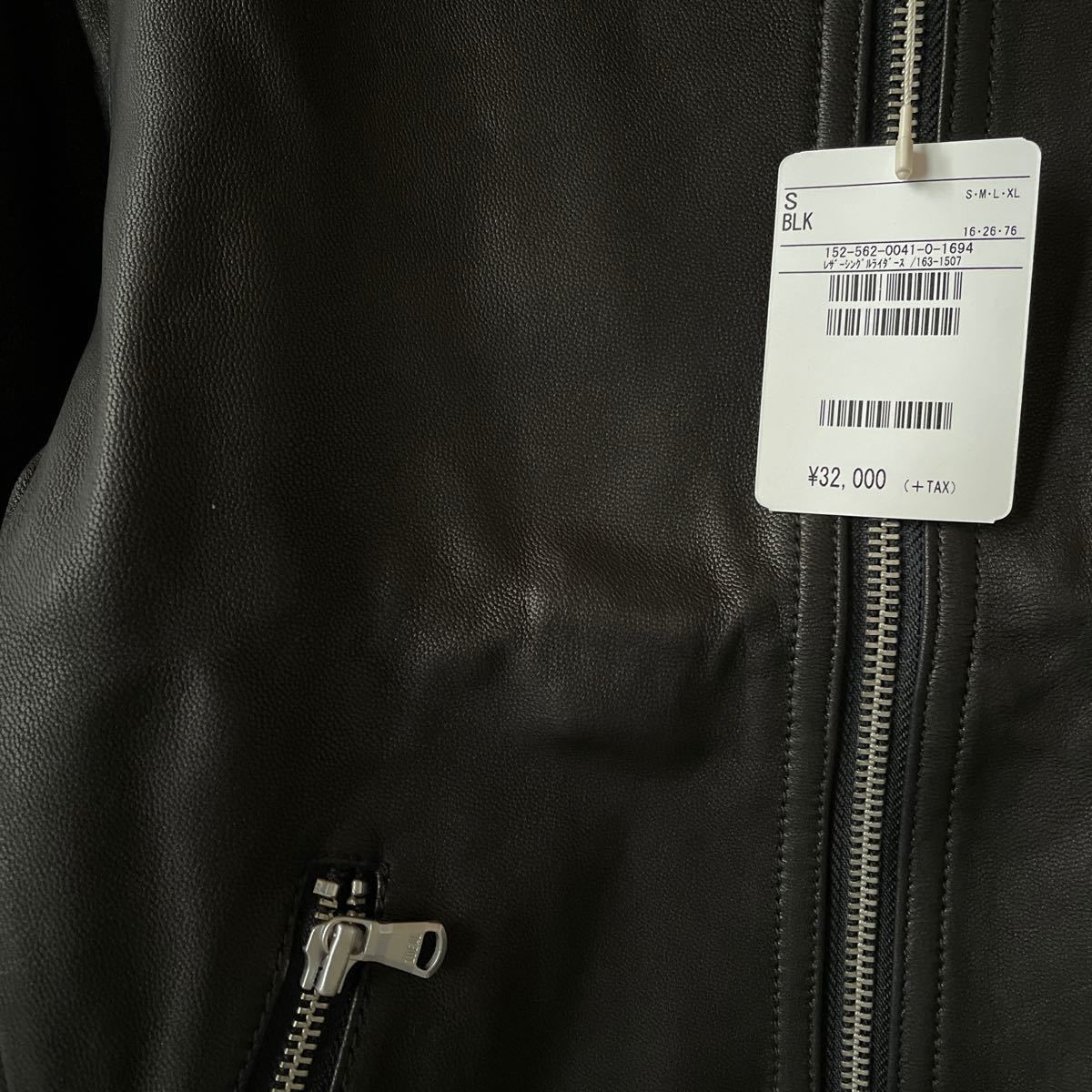FREAK´S STORE フリークスストア フェイクレザージャケット
(税込) 送料込み
商品の説明
☆ #M69その他の出品物はコチラ ☆
メンズ服・レディース服の他、ブランド・スニーカー・帽子・バッグ・靴・アクセサリー等幅広く商品を出品しております。是非その他の商品もご覧ください。
【ブランド】
FREAK"S STORE
フリークスストア
【アイテム】
フェイクレザージャケット
213-3506
【色、柄】
ブラック
【サイズ】
F
【実寸】(平置き)
着丈:67 肩幅:65 身幅:71 袖丈:48 袖口:12
【状態】
C
若干のダメージあり
S:新品未使用
A:美中古品
B:使用感はあるが目立った汚れやダメージがない
C:使用感があり若干の汚れやダメージがある
D:汚れやダメージがある
採寸には多少の誤差がある場合がありますので、あらかじめご了承ください。
状態の確認をしておりますが、見落としてしまった多少の汚れやダメージがある場合もありますので、あらかじめご了承ください。
よろしくお願い致します。
#FREAKSSTORE
#フリークスストア
W14548商品の情報
| カテゴリー | メンズ > ジャケット/アウター > レザージャケット |
|---|---|
| 商品のサイズ | FREE SIZE |
| ブランド | フリークスストア |
| 商品の状態 | やや傷や汚れあり |

FREAK'S STORE/フリークスストア フェイクレザーブルゾン | Daytona

FREAK'S STORE/フリークスストア フェイクレザーブルゾン | Daytona

フェイクレザーブルゾン | FREAK'S STORE(フリークスストア)の通販

FREAK'S STORE/フリークスストア 【送料無料】フェイクレザーブルゾン

FREAK'S STORE/フリークスストア フェイクレザーブルゾン | Daytona

ジャケット ブルゾン FREAK'S STORE/フリークスストア フェイクレザー

ボア襟フェイクレザーブルゾン | FREAK'S STORE(フリークスストア)の

FREAK'S STORE(フリークスストア)の「フェイクレザーブルゾン

ご予約品】 【FREAK'S STORE】フェイクレザーブルゾン ブラック レザー

FREAK'S STORE/フリークスストア フェイクレザーブルゾン | Daytona

FREAK'S STORE/フリークスストア 【送料無料】フェイクレザーブルゾン

FREAK'S STORE/フリークスストア 【送料無料】フェイクレザーブルゾン

2023年最新】freak's store フェイクレザーブルゾンの人気アイテム

FREAK'S STORE/フリークスストア フェイクレザーブルゾン | Daytona

直販割引品 FREAK´FREAK´S STORE フェイクレザーブルゾン メンズ

FREAK'S STORE(フリークスストア)の「フェイクレザーブルゾン

FREAK'S STORE/フリークスストア 【送料無料】フェイクレザーブルゾン

FREAK'S STORE/フリークスストア 【送料無料】フェイクレザーブルゾン

FREAK'S STORE/フリークスストア フェイクレザーブルゾン | Daytona

のファーを FREAK'S STORE - 新品未使用 フリークスストア レザー

FREAK'S STORE/フリークスストア フェイクレザーブルゾン | Daytona

フリークスストア(FREAK'S STORE)フェイクレザーブルゾン sariater

FREAK'S STORE/フリークスストア フェイクレザーブルゾン | Daytona

FREAK'S STORE/フリークスストア フェイクレザーブルゾン | Daytona

FREAK'S STORE/フリークスストア フェイクレザーブルゾン | Daytona

FREAKS STORE フリークスストア ライダースジャケット アウター レザー

直営店にて発売致します フリークスストア レザージャケット - clubzeta.cl

FREAK'S STORE/フリークスストア 【送料無料】フェイクレザーブルゾン

FREAKS STORE フリークスストア ライダースジャケット アウター レザー

ヤフオク! -「freak's store レザー」の落札相場・落札価格

FREAK'S STORE/フリークスストア フェイクレザーブルゾン | Daytona

FREAKS STORE フリークスストア ライダースジャケット アウター レザー

驚きの価格 ジャケット ブルゾン FREAK'S STORE フリークスストア

FREAK'S STORE/フリークスストア フェイクレザーブルゾン | Daytona

FREAK'S STORE - フリークスストア フェイクレザーの通販 by きょう's

FREAKS STORE フリークスストア ライダースジャケット アウター レザー

FREAK'S STORE/フリークスストア フェイクレザーブルゾン | Daytona

Freak´s Store フリークスストア 羊革 ライダース ジャケット 最新情報

のファーを FREAK'S STORE - 新品未使用 フリークスストア レザー

FREAK'S STORE/フリークスストア フェイクレザーブルゾン | Daytona








商品の情報
メルカリ安心への取り組み
お金は事務局に支払われ、評価後に振り込まれます
出品者
スピード発送
この出品者は平均24時間以内に発送しています














